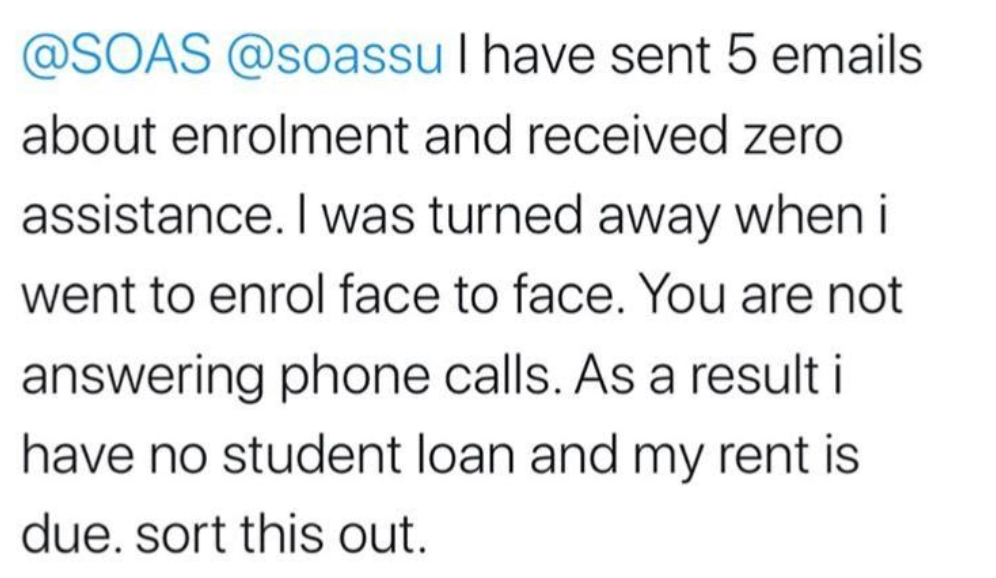By Millie Glaister, BA Politics and International Relations
The Transformation and Change process is SOAS’s most recent attempt to make the ‘urgent, radical change’ deemed necessary to remain financially viable. As of the start of the 2020/21 academic year, SOAS has cut 60 programs and 247 modules. These cuts are accompanied by significant personnel cuts, the extent of which are still not officially disclosed.
“SOAS allegedly had the task of finding £17 million over the summer in order to stay afloat for the coming academic year.”
SOAS allegedly had the task of finding £17 million over the summer in order to stay afloat for the coming academic year. This figure was confirmed by Sandy Nicoll, UNISON branch secretary, who elaborated, saying these cuts were made in preparation for a decrease in student recruitment for the upcoming academic year due to COVID-19. Nicoll claims that UNISON urged management to delay these decisions until they had a firm grasp on the effects of the cuts so that they could act accordingly, but were ‘clearly ignored.’
The main source of cuts came through voluntary severance (VS) packages, offered to both professional services and academic staff. Nicoll mentioned that the previous year, these packages offered ‘one year salary,’ but this year it was reduced to six months, despite ‘being asked to leave into what’s essentially quite an uncertain employment situation.’ Nicoll claims that student recruitment figures actually exceeded their projections, saying that ‘SOAS outperformed their COVID-adjusted targets.’ When talking to the Spirit, Dr Feyzi Ismail of the Department of Development Studies commented that ‘either they [upper management] are super incompetent, that they miscalculated gravely, and let all of these people go … or they did it deliberately. It’s got to be one or the other, or a combination of both, which is just inexcusable, really, it’s so unacceptable.’
Fractional workers at SOAS are amongst those positions which are vulnerable despite already facing a round of cuts earlier this year. Fractionals on fixed term contracts are unable to receive severance pay, instead, contracts are simply not renewed. Maia Holtermann Entwistle, PhD student and de facto fractional representative for the Department of Politics and International Studies says this leaves fractional staff without ‘security in a global pandemic and a financial crisis, where jobs are very hard to come by.’ Holtermann Entwistle says the issue is further exacerbated by little communication between upper management and fractionals.
The reduction in administrative staff has also had repercussions on students who are left unable to access student loans or attend classes online, with some students taking to social media to express frustration at the issue.
Alongside fractional teaching staff, professional services saw cuts. Whilst official numbers are yet to be released, Nicoll estimates that close to 1 in 4 professional staff were made redundant – the effect of which, he states would cause ‘absolute devastation to the services provided to students and academic staff.’ Nicoll alleges that despite the ongoing pandemic, cleaning hours were cut by 40% and security hours by 30%.
Interim director, Graham Upton, has made reference to a ‘December Census’ – the point at which the institution’s income of fees is determined. This census will provide an indication of whether the cuts made have been beneficial to the financial viability of the school.
Photo Caption: A public complaint to the institution demonstrating the administrative incapacitation. Credit: @aadilahpatel, Twitter.
